You already know that fentanyl addiction can be devastating. What you may not realize is that help and hope are just a phone call away. At Blue Ridge Mountain Recovery Center, you can get the care that you need to live a healthy and satisfying life.
Treatment for Fentanyl Addiction
Learn More About the Treatment We offer for Fentanyl Abuse
Many people believe they can’t become addicted to something legally prescribed and assume fentanyl, an extended relief opioid usually reserved for severe cases of intractable pain, must be safe if is a prescribed medication. This couldn’t be farther from the truth– all prescription medications carry some side effects and narcotics always run the risk for addiction. Unfortunately, fentanyl is addictive and may lead to serious complications if continued. At our treatment center, we understand how easy it can be to become addicted to fentanyl and how difficult it is to face the stigma of prescription medication abuse. You can recover from fentanyl dependence and through our comprehensive rehab, we can help.
Types of Treatment
Types of Treatment Offered at Blue Ridge Mountain Recovery Center
Blue Ridge Mountain Recovery Center is a sub-acute detoxification and intensive residential fentanyl abuse rehab center that treats men and women 18 years of age and older who have been experiencing fentanyl addiction, and potential co-occurring mental and behavioral health disorder. Located in Ball Ground, Georgia, on 40 acres of wooded countryside in the foothills of the Blue Ridge Mountains, our treatment center provides our clients with the opportunity to rehab in a comforting, nature-filled environment.
The compassionate staff at our treatment center are dedicated to offering the highest quality of rehab that is designed around each unique client. We approach care from the holistic model, understanding that fentanyl addiction is a disease of the system and not simply the person. We have designed care that draws from numerous rehab models and treatment techniques consisting of a number of evidence-based treatment models.
Because each man or woman receives care that has been tailored according to his or her needs, strengths, and rehab goals, each client receives an individualized treatment plan at Blue Ridge Mountain Recovery Center. Depending on their unique needs, clients are usually placed in one of two programs, listed below.
Detoxification Treatment
Residential Sub-acute Detoxification Treatment
In some cases, individuals who have been experiencing fentanyl addiction struggle with also being physically dependent on the opioid. Those who meet this description, and who have had great difficulty ending the substance use prior to entering treatment at Blue Ridge Mountain Recovery Center, we provide medically monitored detoxification services to ease the rehab process.
Blue Ridge is one of the few treatment centers in Georgia that offers a full range of clinical and sub-acute medical services, including medically supervised detox, and is staffed 24 hours a day, 7 days a week. Our detoxification program begins with a complete evaluation of the client’s fentanyl abuse history, current characteristics, and patterns of use. Each individual is supervised by our medical director and nursing staff to ensure safe detoxification and a more comfortable withdrawal process. Once an individual has completed detox with us, he or she can then transition directly into the rehab process at our residential treatment center.
Residential Fentanyl Rehab Center
Clinically Managed Residential Fentanyl Rehab Center
Blue Ridge Mountain Recovery Center in Georgia offers residential treatment that keeps rehab simple, yet logical. Residential treatment includes individual therapy, group therapy, activities designed to heighten wellness, and medical management of symptoms (as needed).
Individual Therapy: We offer a number of rehab techniques in the individual therapy at our center, including psycho-social education, cognitive-behavioral therapy, dialectical behavior therapy, music therapy, relapse prevention, relapse recovery and multiple family therapy models. Individual sessions between a client who is being treated for fentanyl addiction and a trained professional can provide valuable opportunities for the client to process successes and setbacks, address specific issues related to his or her recovery, and receive essential guidance and feedback.
Group Therapy: We implement groups based on three learning styles; cognitive (intellectual learning), affective (emotional learning) and skills development (“how to” learning). Our rehab process is designed to engage the spiritual, emotional, mental, physical, social, legal and vocational needs of our clients helping them transform their whole person.
Medical Management of Symptoms: Medical management of mental health symptoms may be provided as needed. If our initial medical evaluation indicates that a client at our center may benefit from medications, he or she may receive medication management services from our psychiatrists and certified registered nurse practitioners.
Family Therapy: At our rehab center, we believe that it is vital to provide education and guidance to the family and loved ones of our clients who struggle with fentanyl addiction. Our family therapy is provided, at no additional cost, to immediate family members and loved ones of clients in our residential treatment center. Approximately every three weeks, we offer family and loved ones the opportunity to participate in our two-day long family workshop. This experience seeks to include family members and loved ones in the recovery journey and provides the opportunity for family to learn more about addiction and recovery. We also provide family sessions throughout each client’s rehab as deemed appropriate by their therapist.
The Expedition– Relapse Recovery Program: “The Expedition” is specifically designed at our center to help those who have relapsed truly recover from their set back. The rehab offered in “The Expedition” requires the development of a personalized relapse treatment plan in which clients and their families or loved ones will:
- Complete multiple assessments, one being a Relapse Assessment
- Get reintroduced to relapse prevention skills
- Reestablish health boundaries and communication
- Develop an aftercare plan
- Participate in peer support activities
We structure “The Excursion” around the same three learning styles we utilize in our residential treatment; cognitive (intellectual learning), effective (emotional learning) and skills development (“how to” learning). We want to engage the spiritual, emotional, mental, physical, social, legal and vocational needs of our clients helping them transform from their relapse back into a healthy, whole person.
At our treatment center, we understand that for individuals who are dealing with disorders such as fentanyl addiction, residential treatment is often just one step in the long journey of rehab. To ensure that each client is best prepared to maintain and build upon the progress that he or she makes while in treatment, we begin planning for discharge the day the individual enters our center. When a client leaves Blue Ridge Mountain Recovery Center, he or she will have a thorough plan that identifies the professional referrals, community-based organizations, and other external resources in Georgia or elsewhere that will support his or her successful pursuit of long-term recovery.
For more information about any aspect of rehab at Blue Ridge Mountain Recovery Center, including answers to any specific questions you may have about treatment for fentanyl abuse, please feel free to contact us at your convenience. We look forward to helping you determine if our treatment center is the ideal place for you or a loved one.













